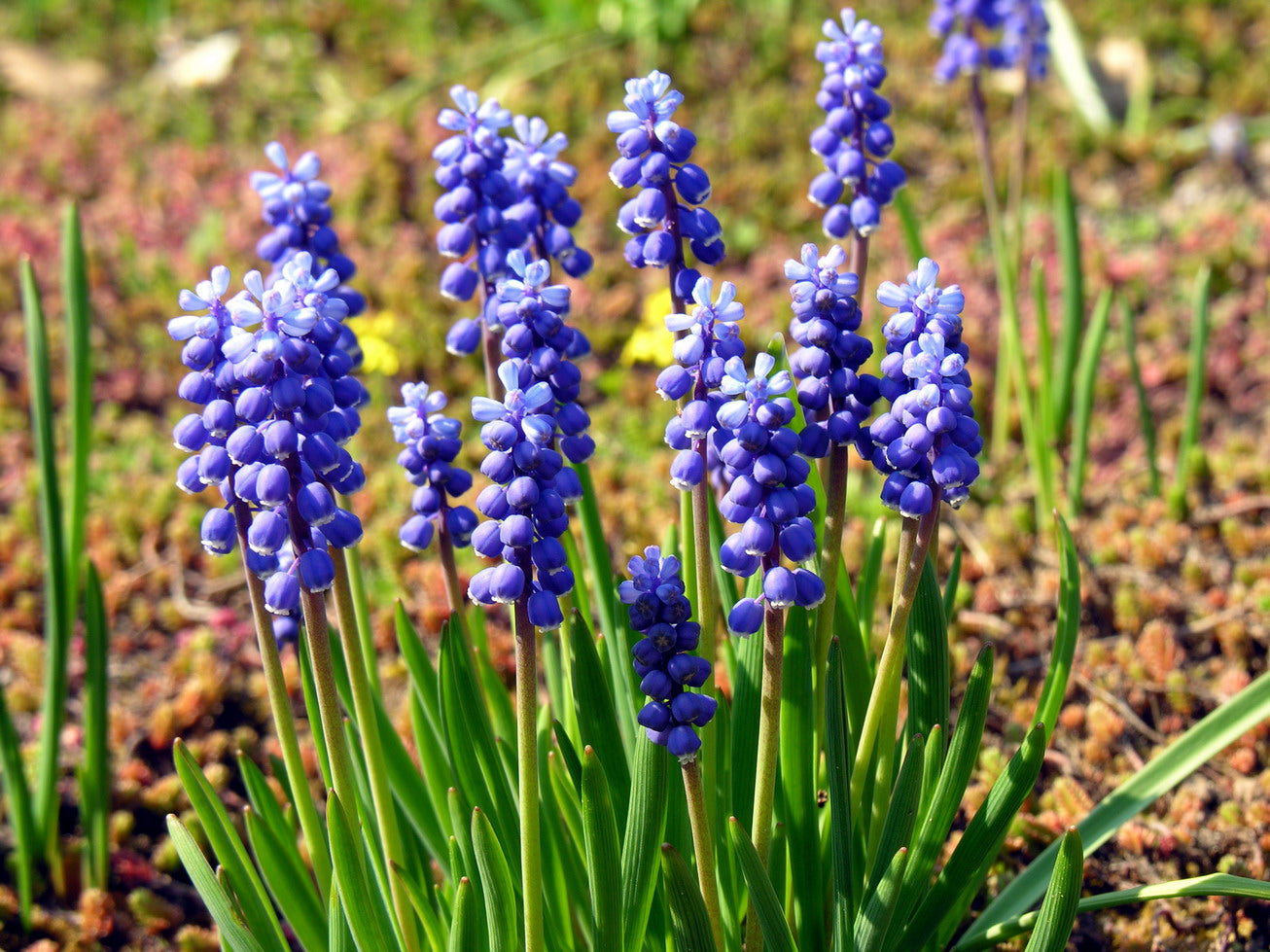Muscari botryoides
Approx. 0.5 litre pot
About this cultivar:
Muscari botryoides is the very pretty grape hyacinth, which produces slender blue flower spikes in spring. Perfect for pots, alpine beds, woodland floors or filling gaps at the front of sunny borders. The name botryoides is derived from the appearance of a miniature cluster of grapes, not sure how though so I have to work on my latin.
- Position: Full sun, partial shade
- Soil: Almost any soil, grows well in Ballyrobert
- Flowers: April, May
- Other features: Suitable for Container, Cut Flowers or Dried Flowers
- Hardiness: Fully hardy, grows well in Ballyrobert, H6 - Hardy in all of UK and northern Europe (-20 to -15°C)
- Habit: Clump forming
- Foliage: Deciduous
- Height: 10 - 25 cm (0.3 - 0.8 ft)
- Spread: 5 - 15 cm (0.2 - 0.5 ft)
- Time to full growth: 2 to 5 years
- Plant type: Herbaceous Perennial, bulb, Alpine or Rockery
- Colour: Green, white
- Goes well with: Anenome, Allium and Narcissus
About this genus:
Muscari (mus-ka-re) gets its name from the Greek moschos, meaning musk, because some of the species have a musky scent. It is a genus of perennial bulbous plants native to Eurasia that produce spikes of dense, most commonly blue, urn-shaped flowers resembling bunches of grapes in the spring. The common name for the genus is grape hyacinth. The use of muscari as part of the name can be traced back to Carolus Clusius in 1601, long before the modern rules of botanical nomenclature were established.
The flowers appear in the spring and form a spike or raceme, being held in a close or loose spiral around a central stalk. The flowers often become less tightly spaced as the flower matures. The flower colour varies from pale blue to a very dark blue, almost black in some cases (albino forms are also known). In some species the upper flowers may be of a different colour and shape to the lower flowers.
This is a typical plant in our garden, growing anywhere that isn't waterlogged or in full shade. Try it with Anenome, Allium and Narcissus.




